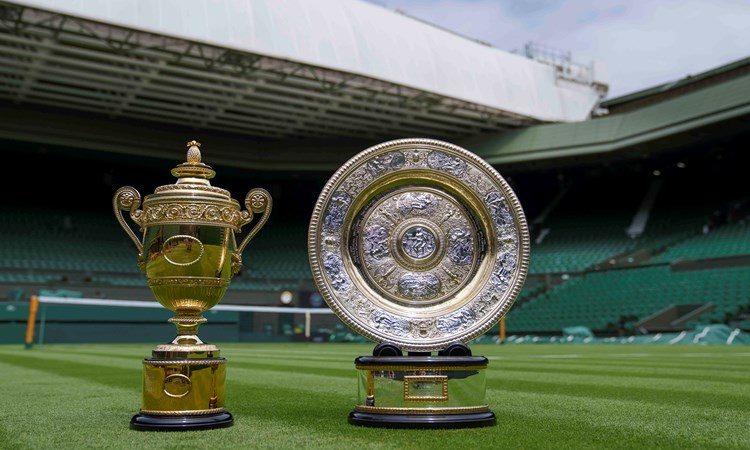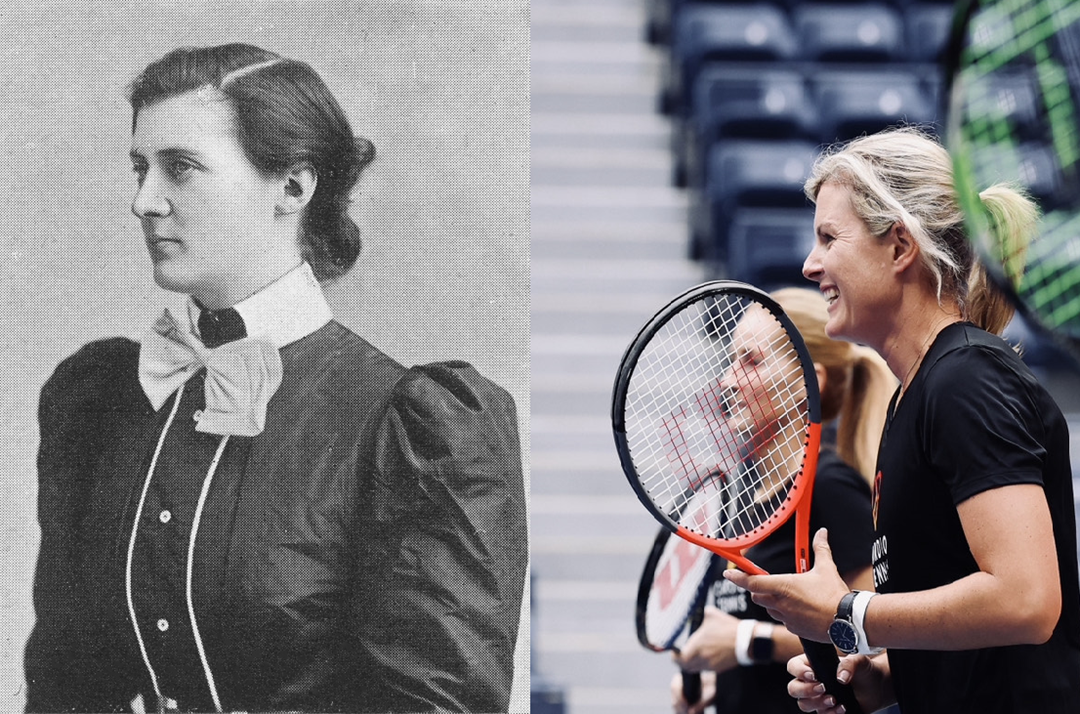
LGBT+ History Month: Lesbian role models in tennis, then & now
• 5 MINUTE READ
As LGBT+ History Month draws to a close and International Women’s Day appears on the horizon, we take a look at two women within tennis, separated by more than a century. Their work in and out of the sport highlights how sexuality and gender should never be seen as a barrier to exceptional achievement.
Throughout LGBT+ History Month, we have heard inspirational stories from many sports and other walks of life. However, very few, if any, of these stories come from a time other than recent history, characterised by the growing visibility of the LGBT+ movement. In tennis, when we think of LGBT+ icons, two of the greats of the sport come to mind, Billie Jean King and Martina Navratilova, from the 1960s and 70s onwards. Go back even further to the turn of the century, however, and you’ll find May ‘Toupie’ Lowther, a woman whose story could fill the pages of a novel.
The first openly lesbian sportswoman
Born in 1874, Toupie was among the earliest group of players to grace Britain’s tennis courts. A contemporary of some of the earliest Colour Holders and Wimbledon ladies' singles champions, in the 1890s and 1900s, she was one of Britain’s leading tennis players. Her most successful period on-court came after the turn of the 20th century, with three wins in four years between 1900 and 1903 at the British Covered Court Championships held at the Queen’s Club in London, along with two of her four Homburg Cup titles, and her first Wimbledon semi-final appearance in those same four years.
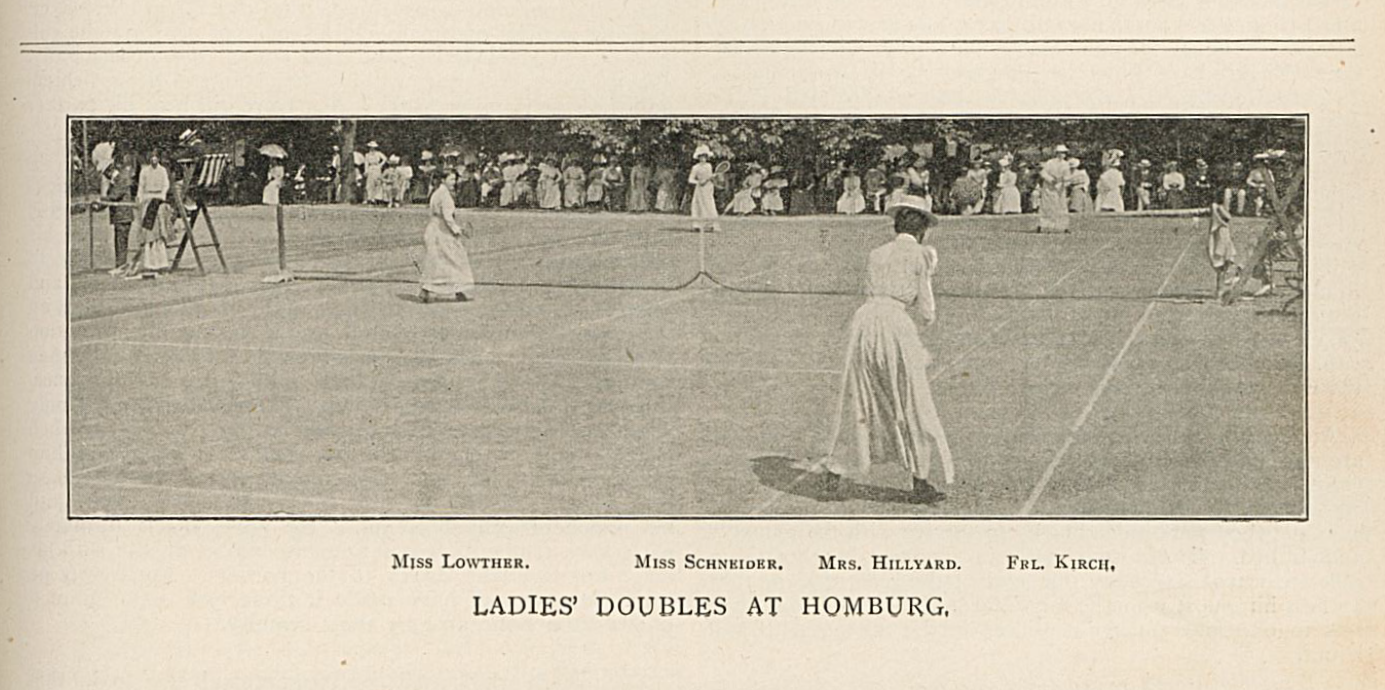
But in many ways, it was her personal life that garnered the most significance, as in 1902 she is thought to have become the first openly lesbian sportswoman.
Let that sink in. 79 years before Billie Jean King was forced to admit to having an affair with a woman, and 86 years before Section 28 legislation prohibited the promotion of homosexuality in Britain, Toupie Lowther was brave enough to be open about her sexuality. If Toupie had concerns that would signal the end of her career, she’d have been wrong. She went on to win more titles in the 1900s, including her fourth Homburg Cup in 1904, and two clay court titles in Nice and Cannes in 1906, the year which also saw her second semi-final appearance at Wimbledon.
She was held in high esteem by her fellow players. George Hillyard, a Wimbledon quarter-finalist who would go on to become secretary of the All-England Club stated in his book Forty Years of First-Class Lawn Tennis that her ‘potentialities were greater than those of any other British lady who ever walked on to a court’.
Such was the admiration for her tennis ability, she was invited by the Doherty brothers, Reggie and Laurie (who between them won nine singles and eight doubles titles at Wimbledon) to write a chapter on ladies play in their book On Lawn Tennis. In it, she wrote arguably her most well-known words: ‘women, as a rule, expend less nervous energy than do men at the game; or is it that they have more pluck?'
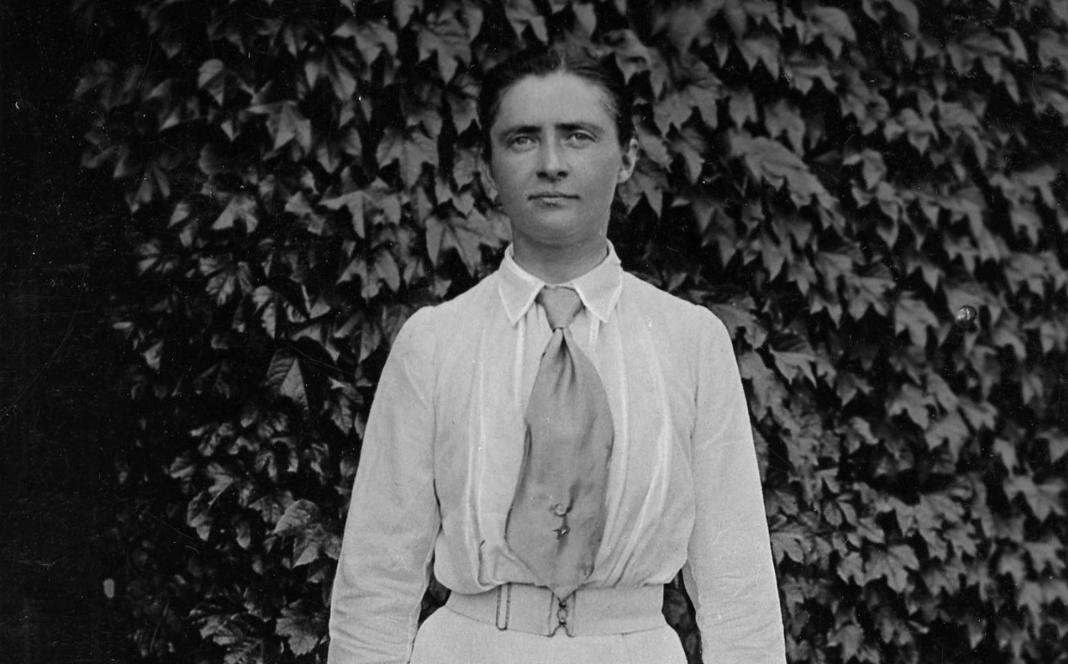
No one can doubt Toupie’s pluck, especially given her post-tennis career. As World War One gripped Europe, she helped establish the all-female Hackett-Lowther Ambulance Unit in 1917, securing donations of vehicles to take over to France and Belgium to rescue wounded soldiers. Twice awarded the Croix de Guerre by the French Army, with a Commandant telling Toupie, “If there is another war… I will send for you”, her work during the war was believed to be the inspiration for the central character in the seminal 1928 LGBT novel The Well of Loneliness. Toupie died in 1944, leaving barely a hint as to the extraordinary life she had led.
“I want to inspire more female leaders”
Fast forward to 2024, and if you head to Wimbledon Park in South West London, you’re almost guaranteed to see many people, young and old, enjoying being out on park tennis courts. Their enjoyment is, in large part, thanks to the work of Emma Wells.
Growing up in Yorkshire, Emma’s love of the game started with watching Wimbledon on the TV with her Grandma, which led to her picking up a racket with, and wanting to beat, her brother. But whilst a desire to outdo her sibling was a powerful motivator, Emma’s passion for the sport really grew thanks to one of her coaches.
“I had a really good female coach growing up, who was that role model for me. I still speak to Bev, who's up in York, to this day which is lovely. It's like she's been on the journey with me, from seven years old to now, when I'm 36.”
Emma spent the majority of her 20s working in the USA as a Tennis Director and also managed the implementation and coach training for sports programs in hotel resorts worldwide.
Emma returned to the UK to help manage a trial partnership between the LTA and leisure provider GLL for a number of London park tennis sites. However, her time stateside had planted a seed for what would evolve and become Emma Wells Tennis.
“I was exposed to a lot of American branding... the camp feel as well was one of the things that made me think ‘right, can we bring this over to the UK and embed it in tennis?’ That’s where the strategy of the company came from; aiming to be friendly and conveying an engaging community coaching culture.”
Ensuring that her group's sessions are inclusive and comfortable for people to get involved is a real focus and is helped by basing themselves on park courts which are accessible to all.
“I think parks are now a real opportunity for people to play without barriers. Last summer, we ran a Pride tournament, which was attended by both members and new players – lesbian, gay and straight – who wanted an inclusive environment to meet others.”
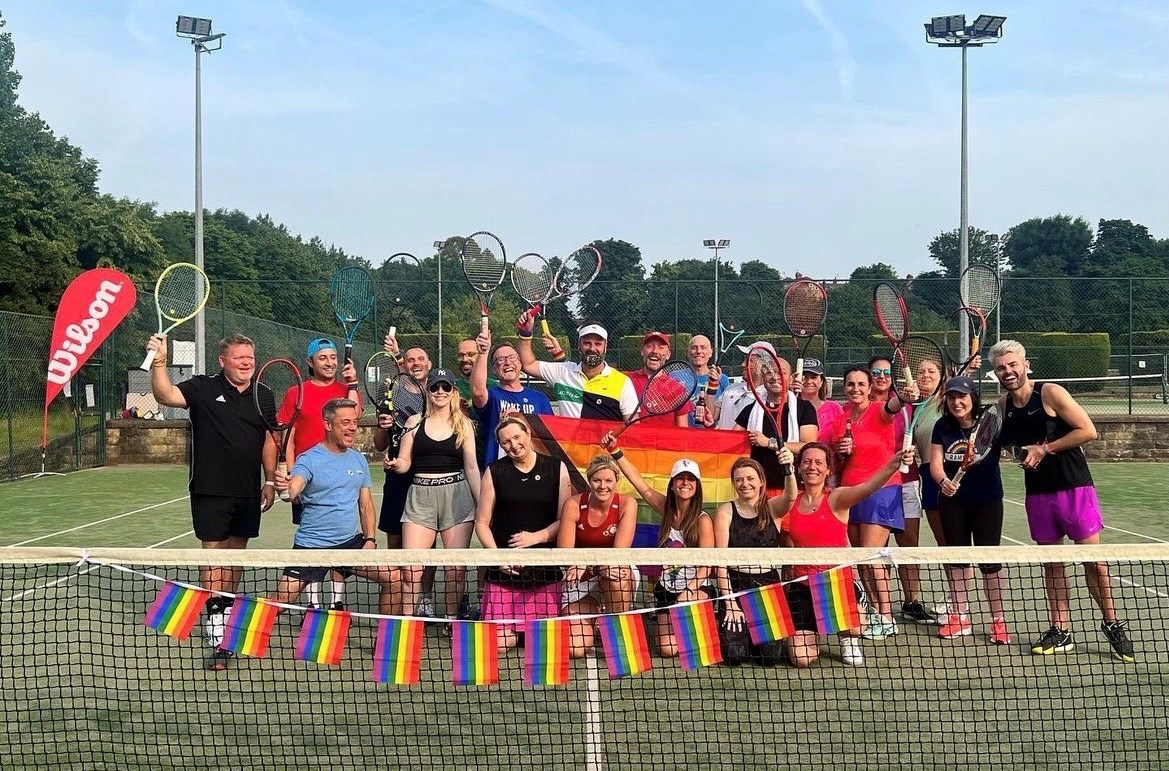
Emma considers herself lucky that, largely, her sexuality has not left her feeling without a safe space, and if anything, being a female in a leadership role has brought more visible challenges, and is something she is keen to ensure visibility of, with an obvious starting point.
“The reason my club is named after my name is I want to inspire more female leaders to feel confident to manage and lead and I want to create a new culture of accessible and professional tennis coaching in parks. If people see it, they can be it and believe it. But if I can be both a visible female and a LGBTQ+ role model, I think it would just make people think, ‘okay, things are possible’.
“As an ambassador for the game, I don't necessarily ever even tell anybody I'm gay because I don't think it really matters, but I know that having those role models around you – friends, coaches, managers, leaders in the industry that are straight or gay – really helps to connect and support you.”
If I can be both a visible female and a LGBTQ+ role model, I think it would just make people think, ‘okay, things are possible’
So far, Emma’s hard work is paying off. Her tennis assistant won Surrey Young Person of the Year in 2022, and the group won the Tennis for All award last year at the Surrey LTA Awards. Additionally, Emma is heavily involved in coach education, has spoken about coaching internationally, and was part of the Tennis Australia Virtual Coaches Conference for 2023. But for Emma, all of this is just the start.
“I’d love to see the group continue to grow, and empower young players to become tennis leaders and on to being coaches. We’ve currently got 12 tennis leaders that are between the ages of 13 and 17 who were playing with orange balls when I started, and it's nice that they've stuck with us and played all the way through. Within that group, over half are females, which is great in wanting to inspire more females to stay in the sport.”

For Emma, her philosophy can be summed up with three simple actions: “Find your passion, carve your mission and believe in yourself.”
The actions and achievements of Toupie and Emma, despite being a century apart, both serve as motivation for what can be achieved, irrespective of a person’s gender or sexual identity. Whether it’s Toupie’s courage to be open about her sexuality and not let fear of discrimination act as a barrier to outstanding achievement, or Emma’s unwavering commitment to providing an opportunity for the next generation of female coaches, their actions should serve as inspiration to all of us.
We would like to thank the Kenneth Ritchie Wimbledon Library at the Wimbledon Lawn Tennis Museum for their assistance in the production of this article.



